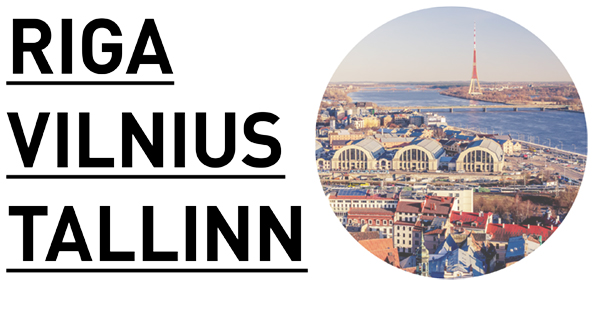ETH Zurich – Institute for Urban Design
HIL H44.1 – Stefano-Franscini-Platz 5 – 8093 Zurich
contact

Post-Soviet Urban Planning and Development in the Baltic States
During the trip to the Baltic states we will explore the Soviet, as well as the Post-Soviet urban developments and transformations in the Baltic capital cities – Riga, Vilnius and Tallinn – and observe the characteristics of the rich and colourful landscapes between them. Accordingly, we will discover urban fragments of the cities, which exemplify the recent urbanization and drive from one city to the other. Moreover, our trip will be enriched by lectures and guided tours by university and civil society representatives.
Despite the Baltic states‘ similarities of their geographical situation, size of the territory, population, traditional lifestyle, Western-oriented mentality, and complementary 20th century history, there are fundamental differences in Riga’s, Vilnius’ and Tallinn’s spatial organization. Above all, they have responded differently to the transformation shocks of the Post-Soviet period. While Vilnius is an inland city, Tallinn and Riga are important Baltic port cities, which used to be members of the Hanseatic League of the middle ages – a mercantile and military alliance of German-dominated cities in the Northern Europe. Beside their situation and size, the typological qualities and the character of urban network differ notably as well.
Therefore, on this trip we will try to trace the similarities and differences of their urban structures by visiting (1) Soviet mikrorayons – post-war housing estates, composed of highrise, prefabricated residential slabs – and single-family housing districts at the urban periphery of Post-Soviet developments, (2) the most eminent legacies of Soviet architecture, and (3) the latest urban regeneration and development projects. In particular, it is crucial to understand what kind of challenges the cities face in the transformation processes driven by the change from a state-socialist regime to an open market economy and liberal democracy, and in their integration into EU laws and regulations.
Participants will be asked to document their observations via means of photography, watercolour, sketch, etc. according to different perspectives to be defined during the intro event. Back in Zurich, we will prepare an exhibition, which will be displayed in the faculty’s exhibition hall before the semester ends.
Organization
Flight dates/times Zurich-Riga-Zurich:
OUTBOUND: Saturday, 21.10.2017, 10:05
RETURN: Saturday, 28.10.2017, 07:50
EXPENSE CATEGORY: C (CHF 501.- to 750.-)
PARTICIPANTS: Min. 15 – Max. 22
INTRO EVENT: Monday, 09.10.2017, 18:00 (ca. 1-1½ hour)
ONA G25, Neunbrunnenstrasse 50, 8050 Zurich
Poster
Contact: Gyler Mydyti
Image: Riga, Latvia - Rolandas Misius / Alamy Stock Photo, 2014
This website has been archived and is no longer maintained.